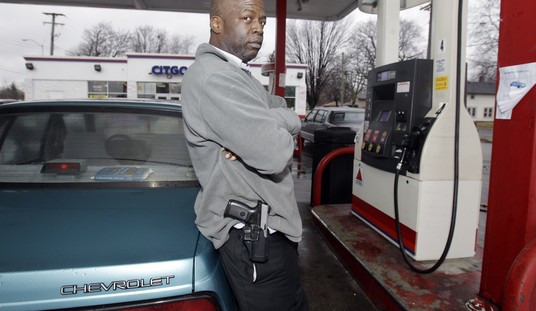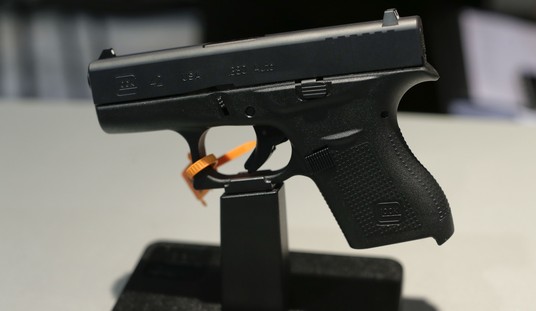“In war, there is no substitute for victory.”
General of the Army Douglas MacArthur (1880 – 1964), Address to Congress, April 1951
It was a cold January day in Virginia and the multitude that gathered to view the ceremony pressed politely against each other to share their body heat and block the biting sea breeze.
Macie Vance stood with Nora and Derek. She had a good vantage point but still had to stand on her toes to get an unobstructed view of the platform erected near the stern of the floating city towering before them.
Today was the day the USS Yorktown (CV-10) would be christened and it was a particularly festive occasion for the thousands who built her. Macie was anxious to see the ship’s sponsor, the person who would christen her.
Derek was right again, she thought. Back in September, this ship was originally to be named the Bon Homme Richard. But after the USS Yorktown (CV-5) was sunk at Midway in June, the Navy Department decided the ship under construction would be named the Yorktown. The huge ship’s crew would be larger than the population of Bedford.
After two weeks in welding school, Macie was assigned to a sub-assembly building welding components. She did this for two months and watched as other young women were trained and brought online into the shipyard’s workforce. Macie attained seniority quickly and was promoted to welding plates and bulkheads on the ship. She often felt like a worker bee in a busy hive as she, along with thousands of other workers and welders, showed up each day to add to this rapidly growing ship.
Derek treated her differently since Jake had come to Newport News back in the summer but there was no doubt in her mind that he still liked her. As a supervisor higher up on the management chain, he looked out for her and made sure she was treated fairly. Macie was still confused by her interest in Derek. Like a moth near a flame, she was attracted to the light but dared not get too close.
Her personal growth in 1942 mirrored that of the country. She bought an old but functional tabletop Philco radio at a flea market and listened to every Presidential “fireside chat” she could. She read the newspaper daily and was coming to grips with understanding the complex war news.
As 1942 came to a close, a year of transition for the United States, the American people were clearly more at ease than when the year began. For the most part, great victories still eluded the Allies but massive defeats no longer plagued them. The unstoppable war machines of Germany and Japan had finally been slowed. During the course of the year there were many turning points upon which the American people could take encouragement.
Japan’s thrust to outflank Australia was blunted in the Battle of the Coral Sea in May. In August the Americans took the initiative in the South Pacific by invading and occupying the islands of Guadalcanal and Tulagi at the southernmost tip of the Solomon Islands chain. The raid on Makin Island a few weeks later by a small group of Marine Raiders along with the United States Army’s initiative in New Guinea, signaled that it would be the Americans who would dictate the time and place of every new battle in the Pacific.
The destruction of most of the Japanese Imperial Carrier Fleet at Midway in June demonstrated that U.S. aircraft carriers could hand the Japanese serious naval defeats. That Japan seized Attu and Kiska in the Aleutian chain, the first invasion of American soil in 128 years, did not panic anyone as it might have earlier in 1942. The Americans had even bombed Tokyo and other Japanese cities in April in the famous Doolittle Raid. The earlier setbacks in the Pacific, notably Pearl Harbor and the Philippines, had all but been eclipsed by the rising tide of better news. The American people began to sleep less anxiously.
Macie knew that all the news was not good. Precious American aircraft carriers had been lost in the Pacific staving off Japanese efforts to retake Guadalcanal. Along with the previously lost Lexington (CV-2) and Yorktown (CV-5), the Wasp (CV-7) and Hornet (CV-8) were sunk supporting the Marines defending Guadalcanal. The Enterprise (CV-6) had also been damaged and the Saratoga (CV-3) crippled. This news gave additional urgency and energy to Macie’s work at the shipyard.
In the Atlantic, the U-Boat attacks that had been an almost daily occurrence in early 1942, a period that German submarine commanders called the “Happy Time”, were on the decline. The Americans had instituted a better convoy and escort system and more effective air patrols rendering the coastal waters of the eastern seaboard extremely dangerous for German submarines. American merchant ships were no longer easy pickings. In July, Admiral Donitz ordered all of his U-Boats back from their patrol zones near the American coast. The U-Boat menace had not been totally defeated but a small tactical victory had been achieved. Allied merchantmen could now navigate in and out of American ports in relative safety.
On the Russian front, the awesome power of the colossal German land and air forces were stopped in December. The German Wehrmacht and its partners, who once numbered over 166 combat divisions and over 4,300,000 men, had been whittled down by the brutal Russian winter of 1941-1942. The fierce counterattacks by suicidal yet effective Soviet forces finally dealt Hitler’s supermen a severe defeat at Stalingrad. The German army was still dangerous but no longer able to mount large-scale offensive operations against the Soviet Union or anyone else.
Macie witnessed first hand the conversion of the American economy from peaceful to wartime production. Tanks and planes were coming off the assembly lines where automobiles had previously been built. Ships of all shapes and sizes were sliding off of the ways of newly constructed shipyards all over the country. Rifles and ammunition were being manufactured instead of refrigerators. Uniforms and equipment came out of the sewing shops instead of gowns and suits. Combat boots were being made in shoemaker shops instead of shoes. Meatless Tuesdays and ration books helped fill the small tin cans in the C-ration and K-ration kits carried by GIs. Small businesses all over the nation became subcontractors to the huge companies that were fashioning the implements of war in grander numbers than could have ever been imagined. Every facet of the American economy and production capacity was coming on line. They included small machine shops, manufacturing companies, coalmines, oil wells, transportation and mom and pop businesses of all shapes and sizes. Mothers, young and old, took in sewing and knitting and fabricated the sweaters, scarves and ski hats for the military and the sailors of the Merchant Marine. The American industrial war machine reached down into every nook and cranny of everyday life and tapped into the unrelenting ability and ingenuity of the American people who were coming together like orphans who finally found their parents.
Most Americans realized by the end of that worrisome year it was merely the momentum of the War that had shifted in their favor. They were too frightened in early 1942 to become complacent too easily. There was much more to do and the price was already high. Thirty-five thousand husbands, sons and fathers would never come home again. Americans would be called upon to make many more sacrifices in the coming years. A great many more gold stars would be hung in a great many more windows across the vast landscape of America before victory. President Franklin D. Roosevelt had proclaimed the Allies would accept nothing less than unconditional surrender from the Axis Powers. There would be no peace negotiations or political settlements. The enemy could either submit or be destroyed. No one had any illusions about how difficult it would be to bring the Axis Powers to their knees. The end was still a long way off down a violent and bloody road.
Macie eyed the massive aircraft carrier rising up before her. It was the fourth Essex-class aircraft carrier to be launched after the Essex (CV-9), Lexington (CV-16) and Bunker Hill (CV-17). Her cheeks were red from the stinging wind and her eyes were tearing from the cold. She leaned closer to Nora Lee to block the wind.
Nora had also moved up the career ladder in the shipyard. She finally got her promotion to Mechanics Helper in the Joiners Department as a Drill Press Operator. She had become somewhat interested in Jonah Cash and then furious when he joined the Marines. She didn’t understand the stigma that young American men felt when they weren’t in uniform. Jonah had to do his part and so he tore up his 2-B draft status slip, quit his draft-exempt job at the shipyard and joined up.
Nora finally heard from the War Department. The first telegram came in July, three months after the fall of Bataan. It said only that Corporal Gilbert “Butch” Blair was missing in action. Then Nora received a telegram just before Christmas that stated, based on a reliable report from the Swedish Red Cross, Corporal Blair was a prisoner of war, whereabouts unknown.
She was fully aware of the terrible stories of torture perpetrated by the Japanese during the Bataan Death March. She had almost accepted his death and was beginning to move on. But now, with this latest news, she had two men to worry about and not at all sure either one of them would ever come home again. The possibility of someday having to make a choice between them troubled her. It was all too much for her to deal with. She decided she would write both of them and free them from any obligation they may have felt to her. If either or both of them survived and decided to come home to her, she would deal with that situation then. In the meantime, she had to unburden herself from the emotional strangulation of being a “widow-in-waiting”.
As Nora trolled the shipyard and USO Clubs for replacement companions, Macie warned her that she was one step away from becoming a “Victory Girl”. V-Girls were known to be promiscuous with servicemen, particularly before overseas deployment. But Nora had reached a point where she simply did not care what people thought. She would never be alone again and would never again endure the broken heart she felt when she was advised that Butch was missing in action in the Philippines. Nora Lee would avoid romantic entanglements. She would seek out the comfort and companionship that only a man could give. And she would do it one man at a time.
In spite of Nora’s moral failings, Macie loved her like a sister. She would never judge her and would be her best friend through thick and thin.
The ceremony was about to begin as the dignitaries climbed the steps to the platform. Macie finally saw who she was looking for. First Lady Eleanor Roosevelt was the sponsor for the Yorktown and would christen her. The assembled shipyard workers erupted in a hearty cheer as Mrs. Roosevelt slowly ascended the steps up to the platform.
The President’s wife was known as the people’s first lady. Wherever there was a just cause that needed a conspicuous leader, she was there. She was tireless in her support of women in the workforce and in the military. She was a major catalyst in getting women pilots engaged in the war effort by ferrying planes from factories to air bases. Black America respected her for her outgoing stand on the inclusion of Negroes into the armed forces in combat roles. Poor people everywhere believed she was the back channel to the President for the social programs of the thirties that helped sustain lower class Americans with public service jobs such as the Civilian Conservation Corps. While she was a lightning rod for criticism of her social positions, she was immensely popular with the working class people of the country, especially women.
Mrs. Roosevelt was dwarfed by the immensity of the ship’s huge mass. Above her on the wide gray stern hung red, white and blue bunting from port to starboard. Under the bunting was a huge banner, which simply read, “Newport News Shipyard presents The Yorktown.”
Finally, the first lady stepped up to the microphone. “I christen thee, USS Yorktown. Long may you serve the great people of your country.” She threw a magnum of champagne, which swung in a wide arc on a long ribbon suspended from the deck. The bottle smashed loudly into the steel stern of the great ship leaving a white foamy blanket dripping down the hull. The gathering erupted in a magnificent cheer, which lasted nearly a minute. During that time, the cheer was sustained by the slow passage of the great hull out of dry-dock and into the James River. It would be months before the Yorktown would be completed with her armament and crew and commissioned into the United States Navy but this was the day the USS Yorktown (CV-10) was born.
Nora looked at Macie and smiled proudly. “Look at that. Look at what we did!” There were emotional tears streaming down her face.
Wiping back her own tears, Macie kissed Nora on the cheek. She turned to Derek, leaned in and hugged him tightly. “We did it.”








Join the conversation as a VIP Member